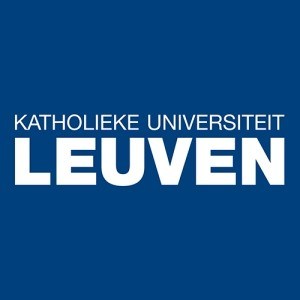Photos of university / #kuleuven
The Bachelor of Theology at KU Leuven offers a comprehensive foundation in the study of Christian theology, religious history, and biblical studies. This program is designed to provide students with a deep understanding of the theological doctrines, sacred texts, and historical developments of Christianity, with an emphasis on critical thinking and scholarly research. Throughout the course, students will explore various theological disciplines, including systematic theology, biblical exegesis, church history, ethics, and interfaith dialogue, enabling them to develop a well-rounded perspective on religious beliefs and practices.
The curriculum combines theoretical knowledge with practical applications, encouraging students to engage with contemporary issues from a theological standpoint. Courses are taught by renowned professors with expertise in biblical studies, church history, and systematic theology, ensuring an academically rigorous experience. As part of the program, students also have opportunities to participate in fieldwork, internships, and study trips that enhance their understanding of religious communities and practices in diverse cultural contexts.
Students are trained to analyze important religious texts critically and to understand their historical and cultural contexts. The program emphasizes linguistic skills, including Latin and Greek, which are essential for original scriptural analysis and scholarly research. Additionally, the Bachelor of Theology prepares graduates for further academic specialization or careers within religious institutions, pastoral work, education, or research organizations.
KU Leuven's Campus Theology is known for fostering an open and inclusive environment where students are encouraged to reflect on their own beliefs and engage in respectful dialogue with others. The program also promotes interdisciplinary approaches, integrating insights from philosophy, history, and social sciences to deepen students’ understanding of religion's role in society. Graduates of this program will be equipped with critical thinking, analytical skills, and ethical awareness, positioning them well for diverse professional pathways related to religion, culture, and education.
The Bachelor of Theology at KU Leuven is a rigorous and enriching academic journey that aims to prepare students for thoughtful engagement with spiritual and societal issues in a globalized world. It promotes intellectual curiosity, moral integrity, and a commitment to lifelong learning, making it an ideal choice for those passionate about exploring the profound questions of faith, human existence, and the search for meaning.
This programme consists of the successful completion, submission and defence of the dissertation. Doctoral students must have completed their Doctoral Programme in Theology before beginning this phase of the doctoral process.
Prior to the public defence of the dissertation and with a view to providing evidence of the capacity to engage in independent theological research, doctoral candidates are obliged, in the context of the Doctoral Programme, to publish separate sections of their research work in the form of at least one international scholarly articles.
While preparing their work for publication they are to submit their manuscript to their promoter for approval. If the promoter approves the submitted work for publication, it should then be offered to the editorial board of an academic journal. Journals connected with the Faculty of Theology and Religious Studies can be considered.
The evaluation and the public defence of the dissertation consist of the following steps:
- Submission of the doctoral dissertation
- Composition of the Reading Committee
- Report by the Reading Committee
- Evaluation by the Reading Committee
- Appointment of the Jury and preparation of the public defence
- The public defence
Detailed information can be consulted in the doctoral regulations.
The promotion to Doctor in Theology takes place at the end of the public defence of the dissertation. The newly promoted Doctor is then also presented with the ecclesial diploma of Sacrae Theologiae Doctor (if the requirements for this canonical degree have been met).
Promotions of the current academic year are announced during the Faculty's solemn proclamations and promotions, which follow the second and third ordinary examination periods.
Requirements
- The candidate has obtained the degree of Research Master of Advanced Studies in Theology and Religion* awarded by the Faculty of Theology and Religious Studies. A candidate who has obtained a second cycle diploma in Theology from another Belgian or a foreign university may also be admitted to the doctoral programme in theology. Such applications are assessed by the doctoral committee. The committee evaluates the content of the various course components of the second-cycle degree that the applicant followed. Should it become evident that the said programme is not equivalent to that required for the Research Master of Advanced Studies in Theology and Religion* offered by the faculty, no direct admission to the doctoral programme in theology will be granted. The committee then passes the file on to the faculty admissions committee.
(* until and including 2016-2017: Master of Arts in de gespecialiseerde studies in de godgeleerdheid en de godsdienstwetenschappen/Master of Arts in Advanced Studies in Theology and Religion) - The candidate can present adequate study results and has obtained at least cum laude for the whole of the master programme(s) and a level of 75% for the Research Paper.
- During the assessment of the application for admission, the total period of time the student needed to obtain the study points for the master programme(s) is also taken into account.
The Theology program at KU Leuven offers various financing options to support students throughout their studies. Tuition fees for international students vary depending on the student's nationality and study load, generally ranging from approximately €980 to €6,000 per academic year. European Union (EU) students benefit from reduced fees, typically around €980 annually, while non-EU students may pay higher rates, often approaching €6,000. Students are encouraged to apply for scholarships and grants offered by KU Leuven, which are based on academic achievement, financial need, or specific criteria related to the student's background or country of origin. The university participates in national and European scholarship programs, such as the Flemish Government Scholarships and Erasmus+ grants, which can significantly reduce the financial burden.
Additionally, students may consider student loans available through government or private lenders, with favorable interest rates and repayment conditions often designed to support young scholars. Part-time work opportunities are available on or near the campus, enabling students to supplement their income during their studies. KU Leuven's financial aid office provides comprehensive advice on funding options, application procedures, and deadlines to ensure students can access the necessary resources to complete their degree.
For international students, tuition fee payments are typically due at the start of each academic year, with installment plans available in some cases. The university also offers financial support for students facing exceptional circumstances, including emergency grants or hardship funds. Students are advised to explore external funding sources such as private foundations, non-governmental organizations, and embassy-sponsored scholarships, which can assist in covering living expenses, travel costs, and other study-related expenditures.
Overall, KU Leuven strives to make theological education accessible by providing a range of financial assistance programs. Prospective and current students are encouraged to consult the university’s official website and financial aid office for detailed and updated information on available funding opportunities, application procedures, and eligibility criteria. Careful planning and early application for scholarships and financial aid are recommended to ensure a smooth and financially manageable academic journey.
The Theology program at KU Leuven offers a comprehensive and in-depth exploration of religious doctrines, biblical studies, church history, ethics, and pastoral theology. Designed for students interested in pursuing careers in religious ministry, academia, or related fields, the program provides a solid foundation in both classical and contemporary theological thought. Students engage with a wide array of texts, including sacred scriptures, theological treatises, and scholarly articles, encouraging critical thinking and analytical skills. The curriculum often includes courses on biblical languages such as Latin, Greek, or Hebrew, enabling students to interpret religious texts in their original languages. Emphasis is given to understanding the historical context of religious developments and their impact on modern society.
The program typically combines theoretical coursework with practical training, preparing students for various roles within religious communities, educational institutions, or public discourse. Fieldwork or internships may be integrated, providing real-world experience in pastoral care, religious education, or community work. Students are encouraged to participate in seminars, workshops, and conferences to deepen their understanding and to stay updated with current theological debates. The program is usually taught by faculty members who are recognized scholars in their respective fields, fostering an environment of academic rigor and intellectual curiosity.
Students graduating from the Theology program at KU Leuven often find employment in pastoral roles, religious organizations, educational settings, and research institutions. The program also offers pathways to advanced studies and doctoral research, supporting those who wish to pursue an academic career in theology and related disciplines. The university’s rich history and strong connections with religious institutions provide students with diverse opportunities for engagement and professional development. Overall, the Theology program at KU Leuven aims to develop well-rounded, critically-minded individuals equipped to contribute meaningfully to religious and societal conversations.

